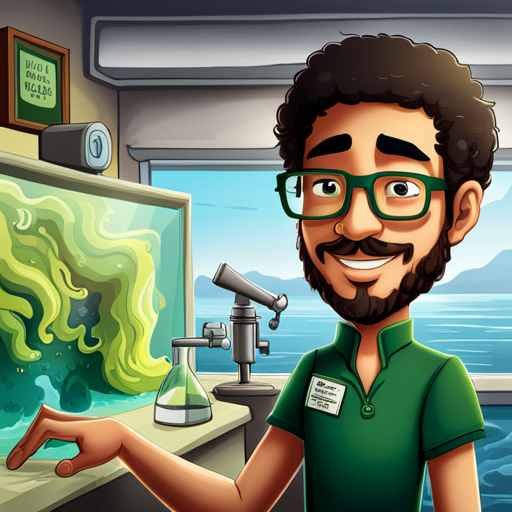Waste treatment and environmental benefits are increasingly becoming essential aspects of sustainable development. In recent years, algae have emerged as a promising solution for addressing these challenges. Algae, a group of photosynthetic organisms, play a critical role in carbon sequestration and climate change mitigation. Their ability to capture and store carbon dioxide (CO2) from the atmosphere and convert it into biomass has garnered significant attention in the scientific community.
Algae-based waste treatment refers to the use of these organisms to break down pollutants and contaminants present in wastewater or industrial effluents. This natural process can help reduce the environmental impact of various industries while producing valuable biomass that can be used as a source of biofuels, animal feed, and other bioproducts.
One major application of algae in waste treatment is their ability to remove excess nutrients such as nitrogen and phosphorus from wastewater. These nutrients, when released into water bodies, can lead to harmful algal blooms and eutrophication, causing severe ecological disturbances. Algae can absorb these nutrients during their growth, effectively reducing the nutrient load in the treated water. Additionally, some species of algae can also remove heavy metals and other toxic pollutants from wastewater, further contributing to the purification process.
Apart from wastewater treatment, algae are also being explored for their potential in treating gaseous emissions from industries. Flue gas emitted by power plants and other industries contains high levels of CO2 and other greenhouse gases that contribute to global warming. Algae can be cultivated in photobioreactors or open ponds using these flue gases as a source of CO2 for their growth. This process not only reduces CO2 emissions but also generates valuable biomass that can be converted into biofuels or other useful products.
The role of algae in carbon sequestration is another crucial aspect of their environmental benefits. Through photosynthesis, algae capture CO2 from the atmosphere and convert it into organic compounds that make up their biomass. This process helps in reducing the overall concentration of CO2 in the atmosphere, thereby helping to mitigate the effects of climate change.
Moreover, algae can be cultivated on non-arable land, which does not compete with traditional agriculture for resources. This makes algae an attractive option for large-scale carbon sequestration projects. Some studies have shown that certain species of algae can capture and store more CO2 per unit area than terrestrial plants, making them highly efficient carbon sinks.
The potential of algae in climate change mitigation is further enhanced by their use as a source of biofuels. Algae-based biofuels, such as biodiesel and biogas, can serve as a sustainable alternative to fossil fuels, reducing greenhouse gas emissions from transportation and energy sectors. Algae biomass can also be used to produce other bioproducts like bioplastics, fertilizers, and chemicals, contributing to a circular bioeconomy.
However, there are challenges associated with the large-scale implementation of algae-based waste treatment and carbon sequestration technologies. Economic feasibility, scalability, and resource availability are some of the critical factors that need to be addressed before these technologies can be adopted on a wider scale. Continued research and development efforts are essential to improve the efficiency and cost-effectiveness of these processes.
In conclusion, algae hold immense potential in addressing waste treatment and environmental challenges while mitigating the impacts of climate change. Their ability to purify wastewater, treat gaseous emissions, sequester carbon dioxide, and serve as a source of sustainable biofuels highlights their versatility and importance in a sustainable future. As research progresses and technologies mature, algae-based solutions could play an increasingly significant role in our transition towards a greener and cleaner planet.


